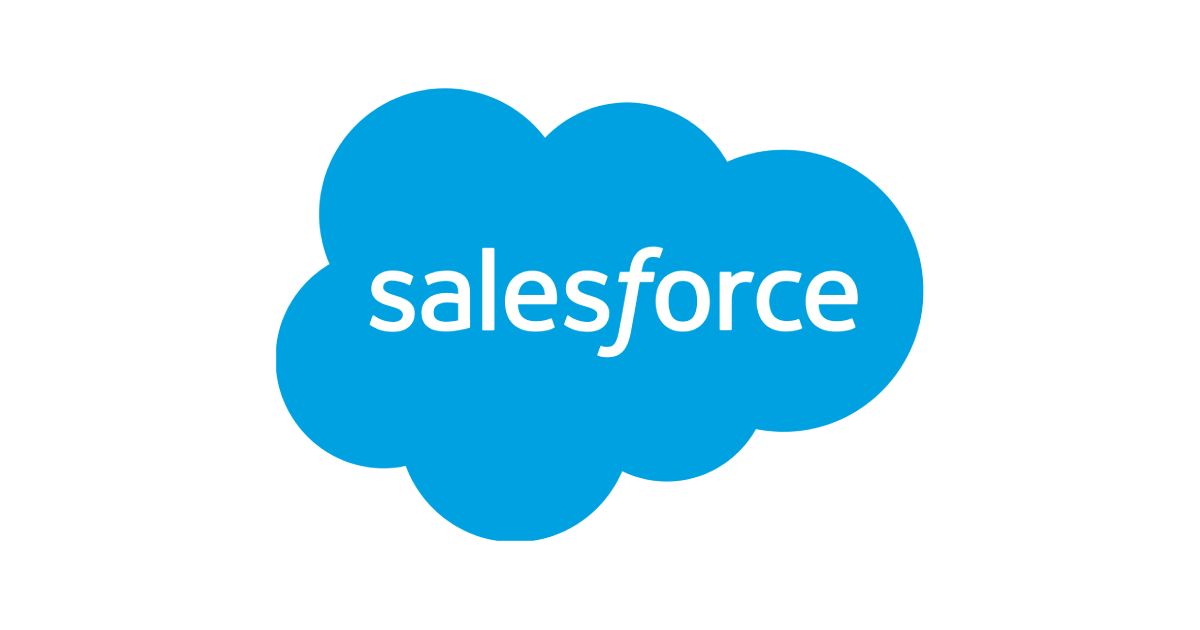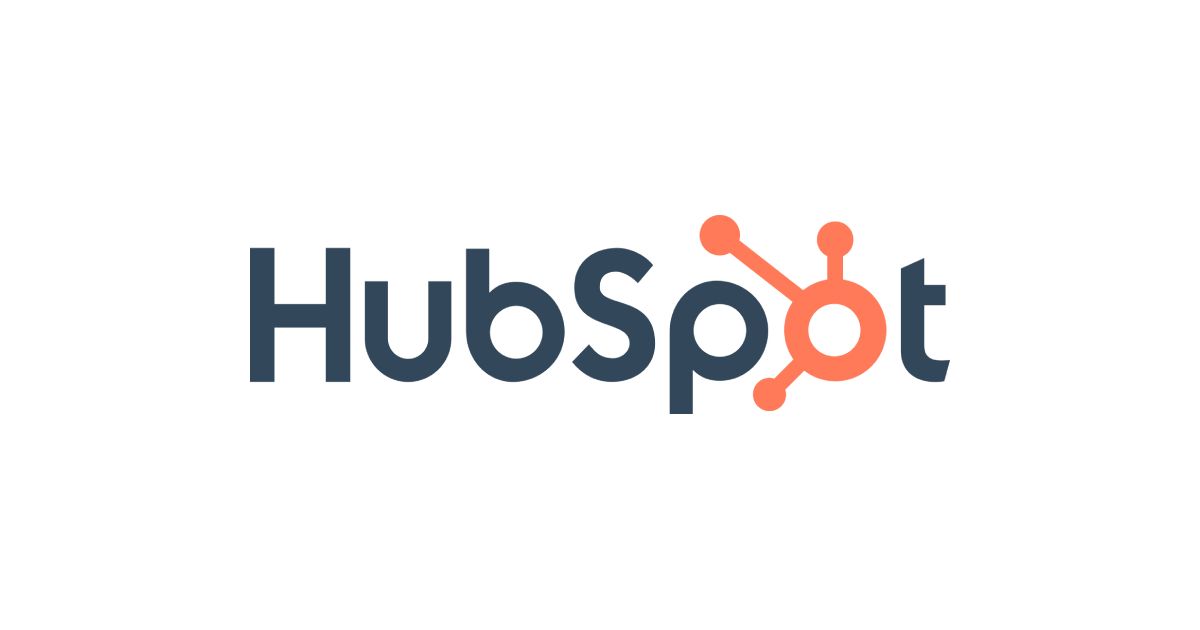Salesforce vs HubSpot: Which is Best in 2024?

In the world of customer relationship management (CRM) and marketing automation, Salesforce and HubSpot stand out as two of the most prominent platforms. Both offer a wide range of features and capabilities, but the choice between them ultimately comes down to your specific business needs and goals.
In this article, we'll compare Salesforce and HubSpot to help you make an informed decision about which one suits your organization best.
Salesforce: A Comprehensive CRM Solution

Salesforce, founded in 1999 by Marc Benioff and Parker Harris, is a cloud-based customer relationship management (CRM) platform that has since grown to become a global leader in CRM software. Inspired by the idea of delivering enterprise software as a service, Salesforce pioneered the cloud-based SaaS (Software as a Service) model, revolutionizing how businesses manage their customer relationships.
Over the years, it has expanded its offerings to include a wide array of tools for sales, marketing, service, and analytics. Salesforce has played a pivotal role in transforming how organizations connect with customers, automate processes, and drive business growth, making it a cornerstone of modern CRM and cloud technology.
Pros of Salesforce
- Customization and Flexibility: Salesforce is highly customizable, allowing businesses to tailor the platform to their specific needs. You can create custom fields, objects, and workflows to match your unique processes.
- Scalability: Salesforce is suitable for businesses of all sizes. It can scale with your organization as it grows, making it a great choice for both small businesses and large enterprises.
- Comprehensive Features: Salesforce offers a wide range of features for sales, marketing, customer service, and analytics. It provides an all-in-one solution, reducing the need for multiple tools and integrations.
- Strong Ecosystem: Salesforce has a vast ecosystem of third-party apps and integrations available on the AppExchange. This allows you to extend its functionality and integrate with other tools seamlessly.
- Analytics and Reporting: Salesforce provides robust analytics and reporting tools. You can gain valuable insights from your data, helping you make informed decisions and improve your business processes.
Cons of Salesforce
- Cost: Salesforce can be expensive, especially for small businesses or startups. Licensing, customization, and ongoing maintenance costs can add up quickly.
- Complexity: The platform's extensive features and customization options can lead to a steep learning curve. It may take time for users to become proficient in using Salesforce effectively.
- Overwhelming for Small Businesses: Salesforce may offer more features and capabilities than small businesses need, making it overkill for their requirements.
- Integration Challenges: While Salesforce has a rich ecosystem, integrating with certain third-party applications and systems can be complex and may require specialized expertise.
- Limited Offline Functionality: Salesforce is primarily a cloud-based platform, and it may not provide the same level of functionality when offline. This can be a limitation for users who need access to data in areas with poor or no internet connectivity.
Top Companies using Salesforce
- Amazon Web Services (AWS): Amazon's cloud computing division relies on Salesforce to manage its customer interactions and sales processes.
- American Express: This financial services giant uses Salesforce to enhance its customer relationships and provide personalized services.
- Coca-Cola: The global beverage company employs Salesforce to streamline its sales and marketing efforts.
- Spotify: The music streaming service utilizes Salesforce to manage its customer data and marketing campaigns.
- T-Mobile: This telecommunications company uses Salesforce to improve customer service and sales operations.
- UBS: The multinational investment bank uses Salesforce for client management and financial services.
- Siemens: The global technology company implements Salesforce for various customer engagement and sales activities.
- The Home Depot: The home improvement retailer uses Salesforce to optimize customer experiences and support.
- Toyota: The automotive manufacturer leverages Salesforce for its sales and customer service operations.
- Marriott International: The hotel and hospitality company uses Salesforce to enhance guest experiences and customer relationship management.
HubSpot: Inbound Marketing Excellence

HubSpot, founded by Brian Halligan and Dharmesh Shah in 2006, has emerged as a trailblazer in inbound marketing and sales software. The company's inception was driven by a desire to transform how businesses attract, engage, and delight their customers. HubSpot's founders coined the term "inbound marketing" and pioneered the concept of creating valuable content to attract and engage potential customers instead of relying on traditional, interruptive advertising.
Over the years, HubSpot expanded its offerings to include a comprehensive suite of inbound marketing and sales tools, and it went public in 2014. The company's platform helps businesses of all sizes grow through inbound strategies, providing marketing automation, CRM, content management, and other essential tools for building lasting customer relationships and driving business success. Today, HubSpot continues to be a leading force in the realm of inbound marketing and sales, supporting countless organizations in their efforts to connect with customers in a more meaningful way.
Pros of HubSpot
- All-in-One Platform: HubSpot provides a comprehensive suite of tools for inbound marketing, sales, and customer service, all in one platform. This integration simplifies operations, streamlines data management, and eliminates the need for multiple disparate tools.
- User-Friendly: HubSpot is known for its user-friendly interface and intuitive design. This makes it accessible to users with varying levels of technical expertise and reduces the learning curve for newcomers.
- Inbound Marketing Excellence: HubSpot is a pioneer in inbound marketing, offering features that enable businesses to create, publish, and promote valuable content. It helps attract, engage, and nurture leads effectively.
- Automation and Workflows: HubSpot's marketing automation capabilities allow businesses to automate repetitive tasks and nurture leads efficiently. Workflow automation saves time and ensures personalized customer interactions.
- Analytics and Reporting: HubSpot provides robust analytics and reporting tools, giving businesses insights into their marketing and sales performance. This data-driven approach helps in making informed decisions and optimizing strategies.
Cons of HubSpot
- Cost: HubSpot can be relatively expensive, particularly for businesses that require advanced features or have large contact databases. The cost may be a significant factor for small businesses with limited budgets.
- Limited CRM Features: While HubSpot provides a CRM tool, it may lack some advanced features compared to dedicated CRM systems like Salesforce. Businesses with complex sales processes may find the CRM functionality somewhat basic.
- Learning Curve for Advanced Features: While HubSpot is user-friendly, mastering advanced features, especially within the automation and workflows, can require time and training.
- Email Limitations: HubSpot's email marketing capabilities may have limitations for larger email lists, and users may need to subscribe to higher-priced plans to accommodate larger subscriber bases.
- Integration Challenges: Integrating HubSpot with certain third-party apps or systems can be challenging and may require technical expertise, potentially resulting in additional costs.
Top Companies using HubSpot
- Shopify: The popular e-commerce platform uses HubSpot for marketing, sales, and customer relationship management.
- SurveyMonkey: The online survey software company relies on HubSpot for marketing automation and lead nurturing.
- Atlassian: The software company known for products like Jira and Confluence uses HubSpot for its marketing and sales operations.
- Trello: The project management tool Trello, owned by Atlassian, also uses HubSpot for marketing purposes.
- Trivago: The hotel and travel booking platform implements HubSpot to enhance its marketing and customer engagement efforts.
- InVision: The digital product design platform utilizes HubSpot for its marketing automation and lead management.
- AWeber: The email marketing software company employs HubSpot for its own marketing and customer relationship management.
- Calendly: The scheduling tool Calendly uses HubSpot for marketing and sales activities.
- ClassPass: The fitness and wellness platform relies on HubSpot to manage its customer relationships and marketing efforts.
- Canva: The graphic design platform uses HubSpot for marketing automation, lead nurturing, and customer engagement.
Making Your Choice

Choosing between Salesforce and HubSpot depends on your business size, goals, and specific requirements. Here are a few key considerations:
- Business Size and Complexity: Assess the size of your business and its specific requirements. Salesforce is well-suited for larger enterprises with complex needs, while HubSpot is often favored by small to mid-sized businesses looking for user-friendly, all-in-one solutions.
- Customization and Scalability: Determine the level of customization you require. Salesforce is highly customizable and scalable, making it suitable for businesses with unique processes and rapid growth plans. HubSpot offers customization options but may have limitations compared to Salesforce.
- Budget and Cost: Evaluate your budget constraints. Salesforce can be more expensive, with pricing based on the number of users and features. HubSpot offers a variety of pricing plans, making it more cost-effective for smaller businesses.
- Learning Curve: Consider the learning curve for your team. Salesforce's extensive features can result in a steeper learning curve, whereas HubSpot is known for its user-friendly interface, making it easier for new users to adapt quickly.
- Integration and Ecosystem: Determine the integration requirements with other tools and systems you use. Salesforce has a vast ecosystem of third-party apps and integrations on the AppExchange. HubSpot offers integrations as well, but Salesforce may provide more extensive options for complex setups.
Final Thoughts
In conclusion, Salesforce and HubSpot are both excellent platforms, but they can cater to different audiences. Evaluating your organization's specific requirements, financial considerations, and scalability needs is essential in selecting the CRM and marketing platform that aligns best with your objectives.
Whether you opt for the robust customization and scalability of Salesforce or the user-friendly, inbound-focused approach of HubSpot, both platforms hold the potential to substantially improve your customer relationship management and marketing endeavors, ensuring your business can thrive in an increasingly competitive landscape.





